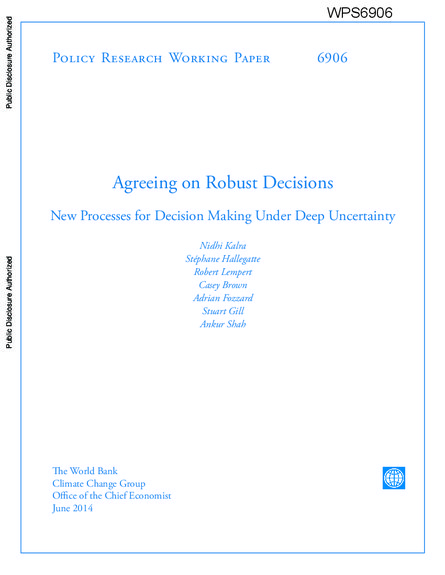
Investment decision making is already difficult for any diverse group of actors with different priorities and views. But the presence of deep uncertainties linked to climate change and other future conditions further challenges decision making by questioning the robustness of all purportedly optimal solutions. While decision makers can continue to use the decision metrics they have used in the past (such as net present value), alternative methodologies can improve decision processes, especially those that lead with analysis and end in agreement on decisions. Such “Agree-on-Decision” methods start by stress-testing options under a wide range of plausible conditions, without requiring us to agree ex-ante on which conditions are more or less likely, and against a set of objectives or success metrics, without requiring us to agree ex-ante on how to aggregate or weight them. As a result, these methods are easier to apply to contexts of large uncertainty or disagreement on values and objectives. This inverted process promotes consensus around better decisions and can help in managing uncertainty. Analyses performed in this way let decision makers make the decision and inform them on (1) the conditions under which an option or project is vulnerable; (2) the tradeoffs between robustness and cost, or between various objectives; and (3) the flexibility of various options to respond to changes in the future. In doing so, they put decision makers back in the driver’s seat. A growing set of case studies shows that these methods can be applied in real-world contexts and do not need to be more costly or complicated than traditional approaches. Finally, while this paper focuses on climate change, a better treatment of uncertainties and disagreement would in general improve decision making and development outcomes.